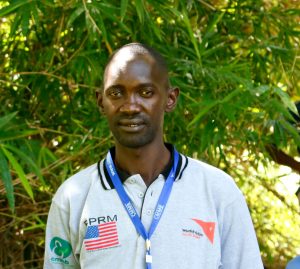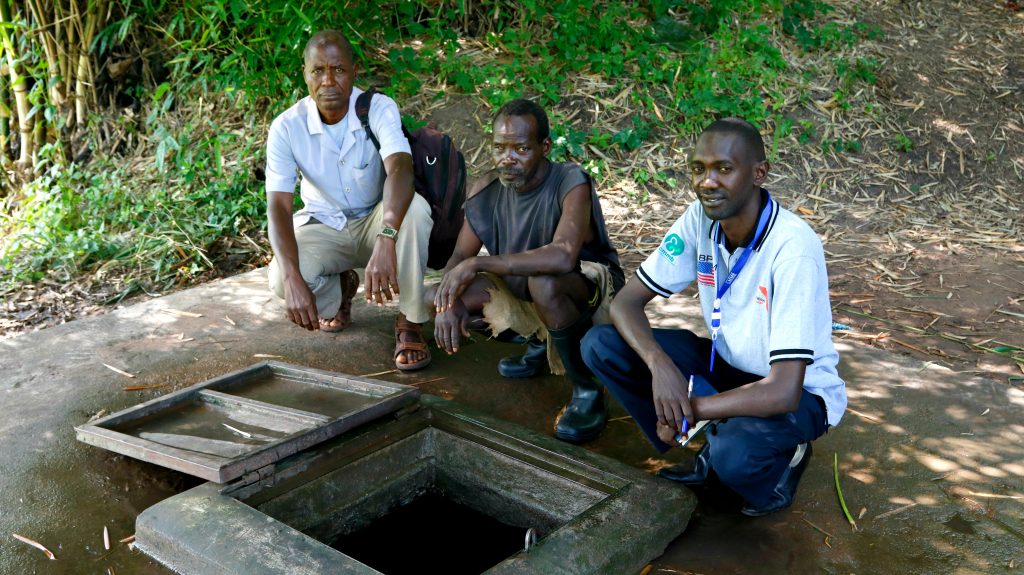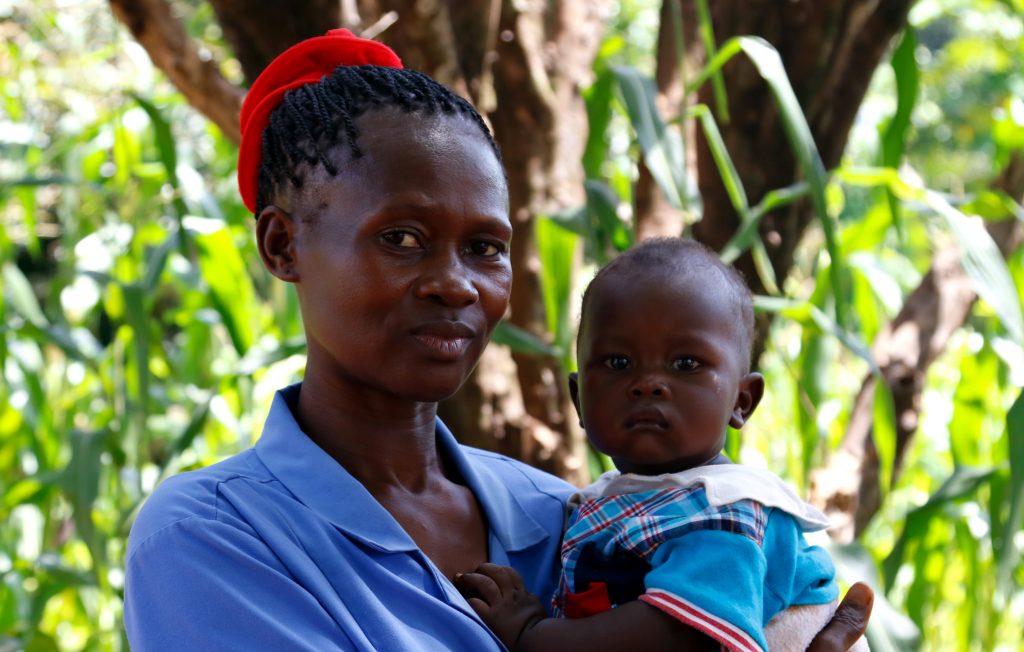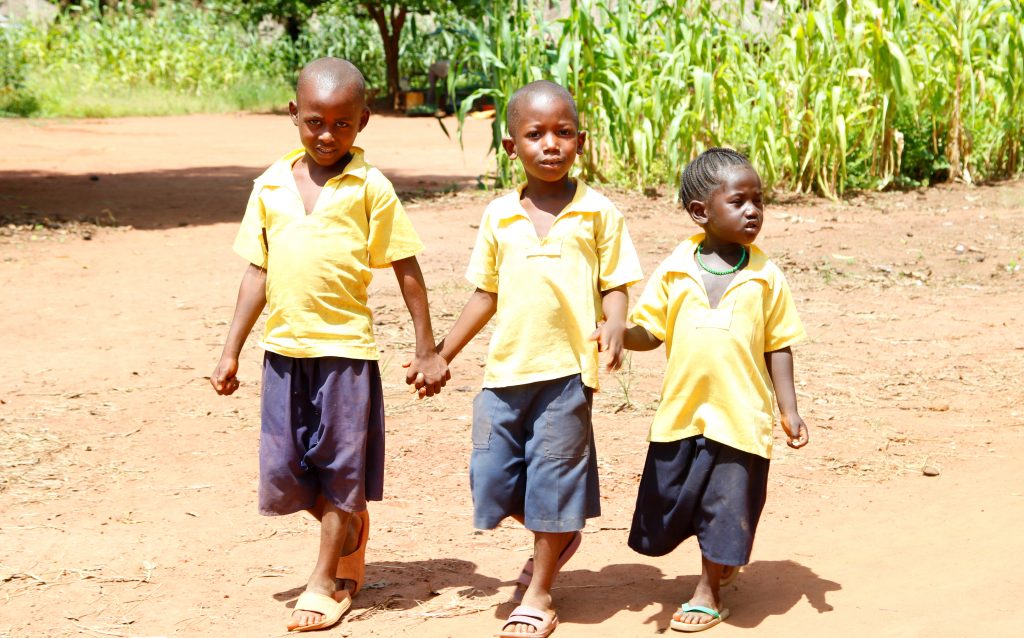The Power of Positive Attitudes and Outcomes in South Sudan
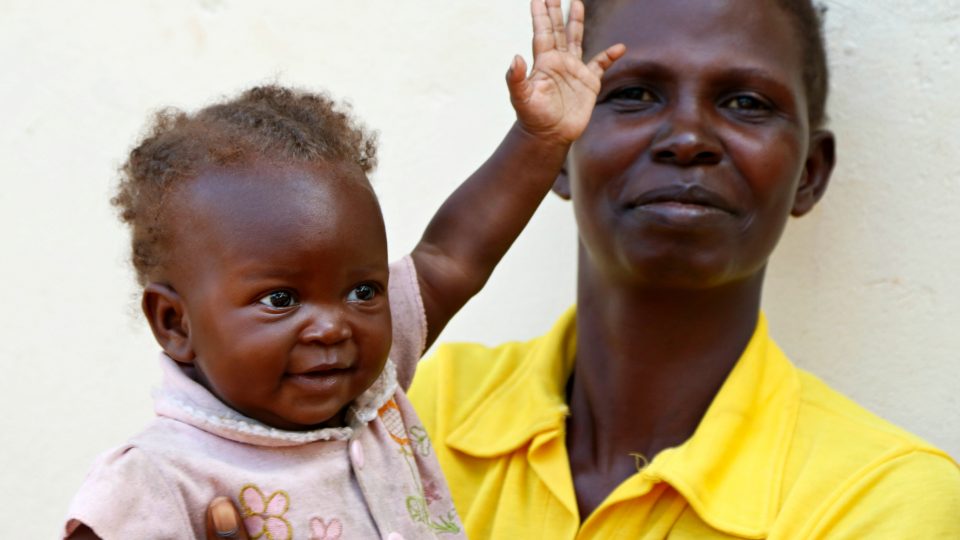
Stephen Tangun worked with CMMB – Healthier Lives Worldwide in South Sudan for six years, most recently as coordinator of the CHAMPS initiative in Nzara and Yambio. Stephen was born in Tambura County, Western Equatoria State, South Sudan, and spent most of his life as a refugee in Central African Republic and Uganda. With an academic background in economics and statistics, Stephen worked for World Vision in South Sudan before joining CMMB. He is currently working on a masters degree in the United Kingdom. As a development professional and a member of the local community, we asked Stephen to talk about CMMB’s impact from his unique viewpoint:
While I have been working with CMMB for six years, I also consider myself a beneficiary. I’ve seen my own people benefit from the programs and services organized and provided by CMMB. As a member of the local community, I appreciate CMMB’s commitment, interventions and direct focus on the critical needs facing people in Nzara, Ezo and Yambio.
While I have been working with CMMB for six years, I also consider myself a beneficiary.
I believe that CMMB’s Children and Mothers Partnerships (CHAMPS) initiative is addressing all the needs of women and children in this region. Our CHAMPS assessment for the area identified the following needs as priorities:
- access to safe water
- water and sanitation (WASH) program
- maternity services
- child protection
- economic empowerment
- HIV/AIDS services
In Nzara, the need for clean and safe drinking water is critical. Currently, water points are very limited. Women and children use water from open springs and ponds which is not very safe. Recently, working in collaboration with the Director of Water and Sanitation for Nzara County, we identified fifteen hand pumps which had broken down in heavily populated areas. Broken pumps mean limited access to safe water. In addition to repairing and refurbishing those fifteen hand pumps, we conducted training for local water committees to ensure that at least five members are trained to repair and maintain water points.
Proper management and use of safe water points is critical because so many people depend on them daily. High use means the pumps break down quite often so CMMB is planning hand pump mechanic training. The project will identify a “mechanic” for each water point, providing training, tools and materials for repair and rehabilitation. By training and supporting members of the local community, we can help ensure that whenever a water point breaks down, it will be fixed quickly. The community won’t need to wait for an NGO, a partner organization, or the government to make the repair. By training members of local communities, CMMB helps ensure that communities are invested, and have the capacity to keep safe water available at existing sources.
CMMB is addressing the critical needs of women and children through maternal and child health programs. CHAMPS addresses the need for safe births, trained birth attendants and health centers where safe deliveries can be conducted by health professionals. Most of the women in this are of South Sudan deliver at home. Access to health facilities is limited, as is the availability of skilled health workers. Many health facilities may not be fully stocked with drugs or other essential medicines. In 2015, CMMB established an operating theater at the hospital in Ezo as well as a small maternity wing. During a recent period of conflict, when many other health facilities were not open or staffed, the maternity wing had a positive influence on the community.
A key aspect of CHAMPS is economic empowerment and developing income-generating activities for people in these communities. In this area of South Sudan, the power of women is a bit less in comparison to men. For some families, this can create issues at the household level. If women can earn and gain economic power, they can access more services, buy food, and send their children to school. Unfortunately, most of the women here, and even most households in general, don’t have reliable sources of income. People depend on farming. Most of the time they grow just enough for their own household use, leaving very little for sale. Unemployment is high and sources of income are very limited. So, if the women in the community have more opportunities to earn, they will also have access to goods and services that they currently cannot afford.
In towns like Nzara and Yambio, most children have access to schools, but in rural areas, educational opportunities are limited. In remote areas, class may be held under a tree, and teachers may not be highly trained. In these remote, rural communities, the rate of children dropping out of school is very high. Through CHAMPS, we’re working to enlighten communities on the importance of education and the rights of children. We educate communities on the right of children not to suffer abuse.
I am from this community.
I believe that the communities here see CMMB as a partner who is able to support them in times of trouble. At one time, this community was really affected by HIV/AIDS, and CMMB brought timely interventions to address infection, prevention, care and treatment. South Sudan often suffers from periods of conflict which create emergencies for many communities. CMMB programs have helped many displaced people with emergency treatment and medical care, as well as with access to safe water and sanitation.
I am from this community and I get very excited when I see interventions that yield outcomes that alleviate the suffering among vulnerable populations like women and children. I look forward to a future where their welfare is improved across health, education and income. I am very glad that CMMB is focusing not only on healthcare but also larger, health-related issues. At the end of the day, it makes the people here feel like CMMB is really listening and addressing the needs of this community.
Read more about CMMB’s programs in South Sudan.
Find out more about the lives of women and children in Ezo, Nzara and Yambio.
